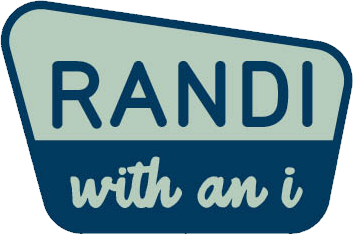Hey, here’s an easy-enough post!
From the second my flight touched down in Ukraine, I’ve basically been throwing alphabet soup in the form of blog posts at you.
“Yeah, my LCF and TCF said I should get at least an int-low on my LPI, which is what most PCTs aim to get before they end PST and head to site.”
Yes, I’m pretty sure I said this exact sentence at some point during my time in Ukraine.
So, I wanted to take a second to make a handy-dandy reference guide you can use when I start talking in government-induced jargon.

・・・
AdSepped: Administratively separated. Basically, if you break the rules and are sent home by Peace Corps administration, you’ve been AdSepped.
CD: Country director. This person is in charge of the Peace Corps program in your country.
Cluster: The small group of volunteers that learn a language during PST together.
COS: Close of Service. This is the date that you are finished with your Peace Corps Service. You get to ring a bell, and then you are officially considered a Returned Peace Corps Volunteer. This is the point at which you go back to. the U.S.
Counterpart: The HCN assigned to each PCV. A counterpart is a volunteers closest coworker, but also a sort-of handler that will help make life abroad easier for the PCV.
ET: Early Terminate(d). If you decide to leave before the end of your two years of service, you’re ETing.
HCN: Host Country National. This is a resident of the country that the Peace Corps Trainee/ Volunteer is serving in.
Hub: Hub days are days during PST. On hub days, all the volunteers get together for training. Hub days happen once a week.
IST: In-Service Training. A conference that happens mid-service.
LCF: Language and Cross-cultural Facilitator. This person teaches language and cultural skills to PCTs during PST.
Link: Two clusters make a link. Our link would get together about once a week for training.
LPI: Language Proficiency Interview. This is the verbal test that Peace Corps Trainees and Volunteers take to gauge progress in the local language. Scores go like this:
-Novice low
-Novice middle
-Novice high
-Intermediate low (int-low)
-Intermediate middle (int-mid)
-Intermediate high (int-high)
-Advanced low
-Advanced middle
-Advanced high
-Superior
PC: Peace Corps. Self-explanatory.
PCI: Peace Corps Invitee. This is a prospective Peace Corps Volunteer who received an invitation, but has yet to start service.
PCMO: Peace Corps Medical Officer. This is the person that all Peace Corps Trainees/ Volunteers work with on any and all medical issues.
PCT: Peace Corps Trainee. From the moment you sign the paperwork at staging to the moment you take the oath and swear in during the Transition to Service conference, you are considered a PCT.
PCV: Peace Corps Volunteer. This is also self-explanatory.
PDM: Project Design and Management. A conference that happens during service.
PST: Pre-Service Training. This is the two-to-three months period that Peace Corps Trainees spend at their training sites, learning language and technical skills before they swear in to become official Peace Corps Volunteers.
RPCV: Returned Peace Corps Volunteer. You’ve finished your service, and will now be branded as an RPCV for life. Congrats!
TCF: Technical and Cross-cultural Facilitator. This person teaches technical and cultural skills to Peace Corps Trainees during Pre-Service Training.
・・・
So, there we are! I’ll add more to this list as they come up, but hopefully this is a somewhat-helpful reference point for all the three-letter abbreviation nonsense I constantly throw at you.

This post was originally published Dec. 14, 2019. Its timestamp has been updated to better reflect the timeline of my Peace Corps service.




